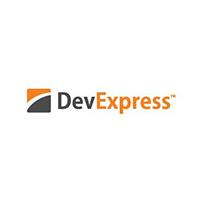Hire Freelance DevExpress Developers and Engineers
Alexey Andreev
Alexey is an enthusiastic .NET architect and developer with 10+ years of experience in designing innovative business solutions. He has built multiple new projects from scratch as well as customized dozens of existing legacy solutions. Last years he was focusing on web applications development and microservices architecture. Alexey is a hard-working, self-motivated person who is able to work independently or within a team.
Show MoreValeriy Karkachev
Valeriy has been in the software industry for over 25 years, specializing in building high-performance desktop applications utilizing the Microsoft stack. He is a self-motivated, detail-oriented problem solver who guarantees the best possible code quality and performance. Valeriy loves his job and strives for constant improvement, preferring full-time engagement.
Show MoreMostafa Hussein
Mostafa is a seasoned software engineer with extensive experience in back-end development, particularly in building cloud systems, pipelines, and DevOps. Currently employed at Volvo, he is adept at working on complex projects that require technical proficiency and innovative solutions. Mostafa's passion for coding and inquisitiveness towards emerging technologies make him a valuable asset to any team seeking a committed and proficient software engineer with cloud systems and DevOps expertise.
Show MoreVladimir Stankovic
Vladimir is a full-stack developer and tech lead with extensive .NET experience and a solid track record of delivering enterprise solutions. He is accustomed to working in Agile environments, onboards into .NET projects efficiently, and grasps complex business requirements quickly. Vladimir has 15 years of continuous development experience with the Microsoft stack and picks up new technologies easily. He has a bachelor's degree in computer science.
Show MoreYevgeniy Yanavichus
Yevgeniy is a software engineer with more than ten years of experience in various technologies. As an ambitious and hard-working individual, Yevgeniy is often recognized for his expertise and commitment to projects by highly respected companies and individuals.
Show MoreNuman Ali
Numan is a seasoned technical lead and developer with over ten years of experience guiding engineering teams to deliver superior products. Leveraging deep technical knowledge and exceptional interpersonal skills, he enhances software development quality and throughput. Numan excels at organizing diverse skill sets to maximize deliverables within strict deadlines. Holding a bachelor's degree in computer science, he embodies a potent blend of technical prowess and leadership proficiency.
Show MoreTiago Silveira
Tiago is a software engineer with over ten years of experience, specializing in developing web applications using .NET ramework on the back end and building modern front ends using JavaScript frameworks. Tiago brings value to clients by delivering secure, performant, and resilient software solutions that are easy to understand and maintain.
Show MoreNick Ivanov
Nick is a senior software developer who's spent more than 14 years working with .NET, SQL, C#, and full stack. He is a developer who can build a solid back end and flesh out the front end. He's worked extensively with SQL Server databases but is also experienced with PostgreSQL, MongoDB, Oracle, and Sybase. Nick can explain his work process clearly and concisely and is eager to continue his career doing freelance remote work.
Show MoreAlexander Skogorev
For the past 15 years, Alexander has worked with .NET technologies. Back then, he began with .NET Framework 3.5 and currently works with the latest .NET Core. He has experience in cloud-based solutions such as Azure and Amazon. He has devoted a lot of time to optimizing code performance. Alexander has excellent experience in finding and fixing security issues. Besides the back end, he is good at modern front-end JavaScript frameworks such as Vue, React, and AngularJS.
Show MoreMateus Artur Schneiders
Mateus is a full-stack web developer with a decade of experience using the .NET platform. He likes to spend his time continually improving his solutions using best practices, new technologies, and applying DevOps techniques. For five years, Mateus helped the world's largest brewer Anheuser-Busch InBev to implement their off-trade software solutions, and he's always looking for new challenges.
Show MoreMd. Munawar Hussain
Munawar is an innovative and result-oriented software engineer with four years of experience. He has worked mostly in Java, Spring, AngularJS, and React. Munawar is highly effective at developing new programs, thinking out of the box, and fixing problems with the existing systems. Consistently up-to-date with cutting-edge technology and proficient in Agile and Scrum methodology, he will be a great addition to any team.
Show MoreDiscover More DevExpress Developers in the Toptal Network
Start Hiring


























